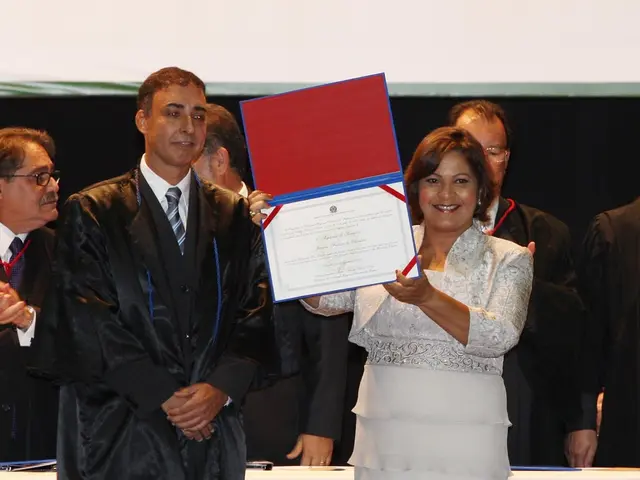California-based automaker Tesla experiences a financial setback as Washington State imposes a tax on their Zero-Emission Vehicle (ZEV) credits sales.
Washington State Proposes Tax on Zero-Emission Vehicle Credits, Affecting Tesla
Washington State has proposed a new tax on the sale or banking of surplus Zero-Emission Vehicle (ZEV) credits, aiming to generate revenue from manufacturers who bank or sell these environmental credits. The tax, if enacted, could potentially encourage more direct investments in zero-emission vehicles or infrastructure within the state.
The proposed tax primarily affects Tesla, a major automaker that generates a surplus of ZEV credits due to its high volume of electric vehicle sales. Tesla frequently sells these credits to other automakers to comply with regulations, and the new tax would make these credit sales more expensive, potentially reducing profitability.
Jeff Gombosky, speaking on behalf of Tesla, urged lawmakers to "put the bill down." However, Washington lawmakers moved forward with the bill, aiming to "level the playing field" between established electric vehicle manufacturers and traditional automakers still transitioning to EVs.
Tesla has expressed opposition to the EV credit tax during public hearings. Critics argue that the original intent of the ZEV program was to encourage electrification, not to create a profit center for a single manufacturer. The bill's primary sponsor, Rep. Joe Fitzgibbon (D-Seattle), stated that the program was never intended to be a source of windfall profits for one manufacturer.
If the bill is allowed to become law, Washington could become the first state to directly tax ZEV credit sales. Companies falling short of ZEV sales targets can purchase credits from those who exceed them, creating a secondary market worth billions. Tesla, which only manufactures electric vehicles, has consistently produced a surplus of ZEV credits.
The new tax framework is designed to apply to any electric vehicle manufacturer that generates and sells ZEV credits in Washington. Banked ZEV credits held for future use will be taxed at 10% of the average market value, as determined by the Washington State Department of Revenue.
The effects of this decision could extend beyond Washington's borders. Other companies could eventually fall under the law's scope if they begin building credit surpluses in the electric vehicle market. The new law imposes a 2% tax on the sale price of ZEV credits.
The bill awaits Governor Bob Ferguson's signature. If signed, the bill will become law and could mark a significant shift in the ZEV credit market.
[Referral Link] - Get three months of Full Self-Driving (FSD) when buying a Tesla.
Sources:
[1] Washington State Legislature. (2022). HB 2077 - 2022 Regular Session. Retrieved from https://app.leg.wa.gov/billsummary?BillNumber=2077&Year=2022
[2] Gombosky, J. (2022, February 2). Tesla's opposition to Washington State's EV credit tax. Retrieved from https://www.teslarati.com/tesla-opposes-washington-states-ev-credit-tax/
[3] Fitzgibbon, J. (2022, February 2). Washington State's proposed tax on ZEV credits explained. Retrieved from https://www.greencarreports.com/news/1132817_washington-state-proposes-tax-on-zero-emission-vehicle-credit-sales
[4] Washington State Department of Revenue. (2022). Proposed excise tax on surplus ZEV credits. Retrieved from https://dor.wa.gov/content/proposed-excise-tax-surplus-zev-credits
[5] Kane, E. (2022, February 2). Washington State's proposed tax on ZEV credits: What it means for Tesla and other automakers. Retrieved from https://www.cnbc.com/2022/02/02/washington-state-proposes-tax-on-zero-emission-vehicle-credit-sales.html
Science and finance intertwine as Washington State considers the impact of a new tax on Zero-Emission Vehicle (ZEV) credits, primarily affecting Tesla and the revenue generated from the sale of these environmental credits. The proposed tax rate of 2% on the sale price of ZEV credits could potentially alter investment strategies in the environmental-science sector, including the development of zero-emission vehicles or infrastructure within the state. This change in the ZEV credit market could have far-reaching ramifications, influencing finance decisions across the industry and potentially beyond Washington's borders.




